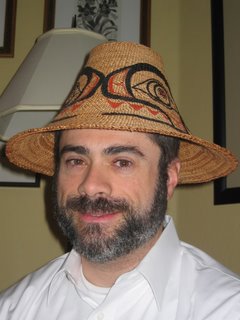10th Year Anniversary
 Today is our 10th year anniversary. I met Someone ten years ago when we were both staying at the same B&B in Key West. I was there for my annual holiday; he was there for the first time. We met at social hour. One could say it was a Broadway musical that made the ‘click’. I voiced a fondness for “The Secret Garden”. He recently was in a production of it.
Today is our 10th year anniversary. I met Someone ten years ago when we were both staying at the same B&B in Key West. I was there for my annual holiday; he was there for the first time. We met at social hour. One could say it was a Broadway musical that made the ‘click’. I voiced a fondness for “The Secret Garden”. He recently was in a production of it.(Since some Spo-fans are smart alecks - he was the Gardener, not Mary Lennox).
I could write all sorts of things about our relationship, but what comes to mind as I write this is the amazement. Has it been 10 years? Didn’t we just meet? More incredible is he bothers to hang in with me. My ADD wiring wasn’t a really a ‘disorder’ until I started to live with another. Bad traits of blurting, the inattention, the difficulty to sit still/finish things around the house all drive him bats. A major mistake is to ask a question only to realize ‘he had said that five minutes ago’. It hurts his feelings so. So there are times I wonder why he bothers to hang around someone like me, or at least without Ritalin.
We aren’t doing much for the day – we will eat out. In two days we go to Costa Rica and we shelled out a lot of $$$ to buy the year’s airplane tickets now. So our ‘gifts’ to each other is the commitment towards the future, expressed in these plans.
I don’t talk about the ups and downs of my relationship on my blog. He likes his privacy – and my family reads this blog. But I am grateful that he is with me. Life without him would feel empty.
I hope that there are 10 years more and then some.











